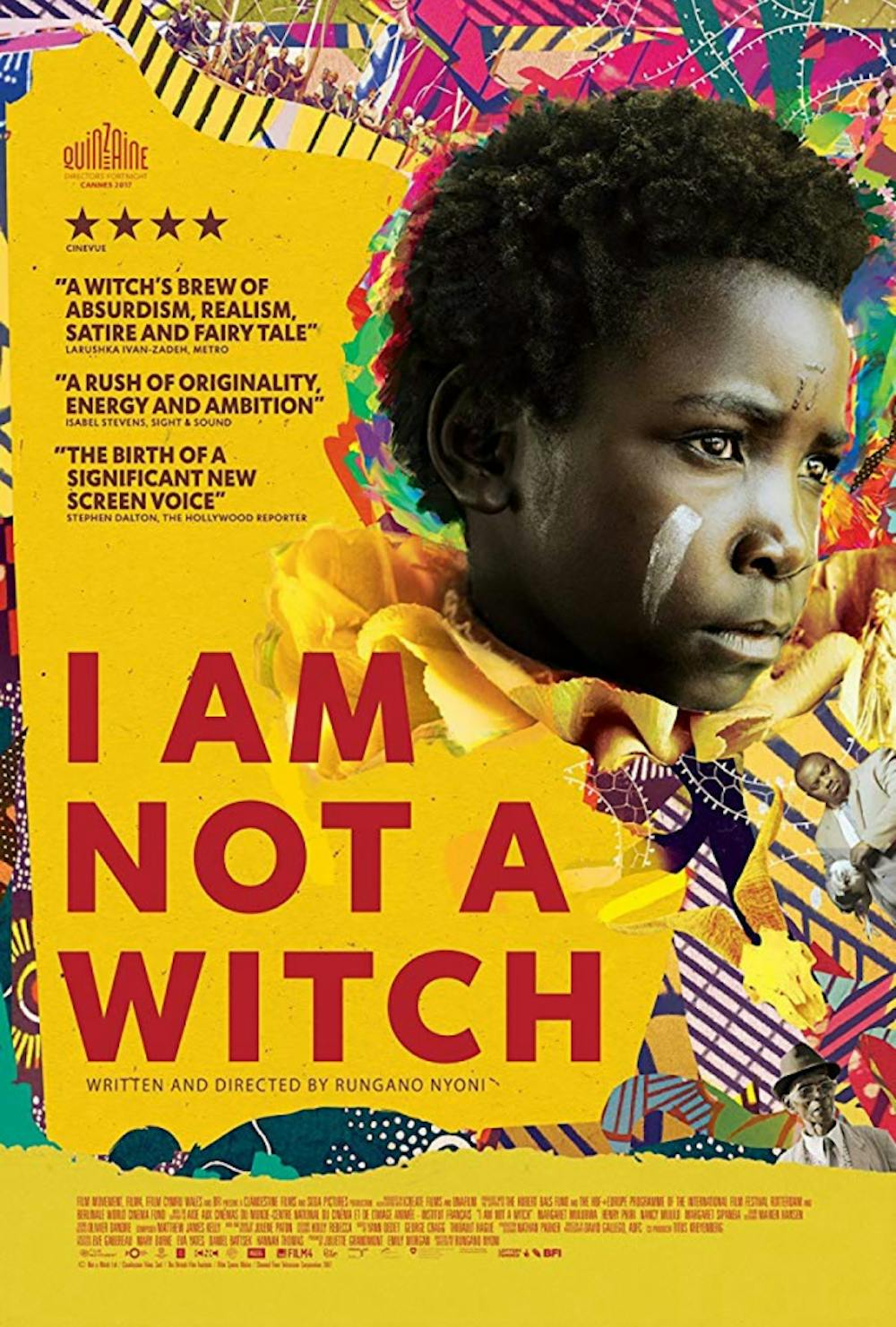Long, white ribbons are used as a visual symbol throughout Rungano Nyoni’s “I Am Not A Witch.” In the film, these ribbons tie women accused of being witches in one place, a representation of strictness towards women in Zambia, Nyoni’s birthplace and the setting of the movie. The image of these ribbons floating in the breeze is a striking, poetic image which in many ways ties Nyoni’s movie together, giving the story a key hallmark and revealing its main focus.
“I Am Not A Witch” is the story of a young girl named Shula (Maggie Mulubwa) who is accused of being a witch, and her trials and travails after she comes into the care of a government employee named Mr. Banda (Henry B.J. Phiri). Most of the other characters are fellow “witches” at the camp where Shula spends much of her time, all older women who form a tight-knit community of their own. Shula’s young age makes her an adored, special figure in that community, making the other witches all the more concerned when Mr. Banda begins to use her for his own purposes.
Throughout the film, there is rarely a scene where Shula is not the main focus, and Mulubwa shines given the opportunity. While she has few lines, the young actress does enough with her eyes and body language to get the audience to invest in a protagonist that could otherwise feel underdeveloped. While some credit obviously has to be given to the director for drawing this performance out of such a young actress, Mulubwa has an unmistakable presence on screen and is without question the film’s breakout performer. Through her, the film’s narrative and themes become clear.
Nyoni, who also wrote the screenplay for the film, is concerned with the treatment of women in her country, as the film explores numerous ways which gender inequality manifests itself. Besides the obvious lack of freedom of the witches, Nyoni imbues the relationship between Banda and his wife with themes which further elucidate the film’s feminist perspective. Banda’s wife, as it happens, is a witch who has managed to achieve respectability due to her marriage, but she is still far from equality, as the movie points out during a stretch in the middle of the film concentrating on her character.
There is also a strong anti-imperialist undertone running throughout. British tourists visit the witches’ compound on two separate occasions, and they are clearly complicit in the mistreatment of these women. Imperialist symbols are also tied to dark points in the plot — Shula sees Banda’s wife treated poorly by her community at an American-style shopping mall, and Estelle and Kanye West’s “American Boy” plays on the soundtrack before the movie’s downer ending is revealed. While Nyoni implicates Zambia’s conservative culture more obviously, she certainly doesn’t let Western powers off the hook, even if she accuses them of wrongdoing in a more subtle way.
While the film puts Shula’s plight front-and-center, it certainly has more on its mind than the story of one little girl. In some ways, the movie is close to a parable in terms of its structure — it uses Shula as a vessel to impart its feminist, anti-imperialist themes, without ever coming across as preachy. At the same time, “I Am Not A Witch” is an engaging, well-directed film which is appealing even without considering the deeper themes lurking in its subtext. Nyoni has crafted a heartfelt work which will illuminate Zambian culture to an audience largely unfamiliar with it, and in so doing, has given the festival circuit an entree into what will hopefully be a long and fruitful career.





